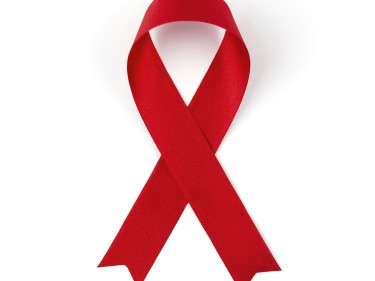Charlie Sheen’s revelation, that he’s been living with HIV after being diagnosed around four years ago, came just weeks before this month’s World AIDS Day, the campaign aimed at uniting people around the globe in the fight against the disease, raising awareness and reducing stigma.
The actor’s decision to speak out has been a deeply personal one, but it’s also put HIV in the spotlight – and while getting people talking is undeniably a positive thing, it’s also highlighted that there’s still a lot of ignorance around the condition.
So what does it mean to be diagnosed with HIV in 2015?
COULD I HAVE HIV AND NOT KNOW IT?
Yes – it is possible to have HIV and not be aware of it. “Around 18,000 people in the UK are currently living with HIV and do not yet know it,” says Sarah Radcliffe, senior policy and campaigns manager at National AIDS Trust (NAT). “In addition to that, 40% of people who found out they had it in the last year were diagnosed late.”
Being infected with HIV does usually cause symptoms, but that doesn’t mean that everybody will think, or want, to go to their doctor and get tested.
“Research shows that the majority of people who are newly infected with HIV do experience symptoms that we call primary infection. Those are often flu-like symptoms – fever, aches and pains, headaches, sore throat, tiredness – and some people have a distinctive rash, with symptoms usually present within the first few weeks of infection,” explains Ms Radcliffe.
“So we’d say at that point, people should go and ask for a test. From that point onwards, after the first few months, someone can live quite a while without noticing any physical impact, for years in fact.”
Crucially, it’s in the very early stages – when there’s lots of virus in your system and the immune system is trying to fight it off, causing you to feel unwell – that HIV is most infectious.
I’M WORRIED I MIGHT HAVE HIV BUT I DON’T KNOW WHAT TO DO
“If people are worried they might have HIV, the most important thing for them is to get tested,” says Natasha, who works for an HIV charity and has been living with the virus for 15 years. If you do have HIV, being diagnosed means you can then start treatment, and get access to any support you might need.
“Once they start treatment, HIV is very unlikely to have any serious impact in terms of long-term health,” she adds.
“Also, people can go on to have children, who will almost certainly be born without HIV. People living with HIV on treatment are highly unlikely to develop serious complications and AIDS-related illnesses, and their life expectancy is the same as anyone else’s.”
WILL BEING DIAGNOSED WITH HIV RUIN MY SEX LIFE?
Most new HIV cases in the UK are caused by having unprotected sex (without a condom) with somebody who’s infected. However, even if you do have HIV, treatments have come a very long way since those terrifying awareness campaigns of the 1980s. While HIV can’t be cured, antiretroviral drugs now mean the presence of the virus can be reduced to such a degree that the chance of spreading it to somebody else is very low. “People can expect to have a perfectly normal sex life,” says Natasha. “If they’re on treatment, the risk of passing on HIV to their partner is very low indeed, because they’ll have what’s called a non-detectable viral load.”
WILL I BE DESTINED TO GET REALLY SICK?
No – as well as significantly reducing the risk of transmission, HIV treatments now mean it’s highly unlikely that anybody diagnosed (providing they have access to treatments) will develop serious complications due to the virus. AIDS-related illnesses in the UK are now wholly avoidable. Without treatment, over time – often a number of years – the virus may begin to cause health problems. However, as Natasha notes: “I know a number of people who were diagnosed very late and found out they were HIV positive because they became very unwell. But once they start treatment, chances are, your health is going to improve dramatically.”
WILL I BE OBLIGED TO TELL PEOPLE?
Ms Radcliffe points out that there aren’t any laws forcing anybody to disclose their HIV status to their partner or anybody else in their lives – but often telling them is a positive step. “It’s a good idea to tell partners, and that’s what everyone would be working towards once they get diagnosed,” she says.
“But it’s important to be clear that it’s not the sort of scenario where you get your results and then immediately have to go home and get on the phone and tell everyone you can think of. You will get support from your clinic to help you tell the people you think probably need to know, and you can give the clinic permission to get in touch with them to say, ‘We think you should come in for a test’.”
There have been cases in recent years where people have been prosecuted for passing HIV onto sexual partners – but, Ms Radcliffe notes, a number of strict factors need to be ascertained in order for this to happen. However, while it isn’t a legal requirement that people disclose their HIV status to partners, if they do know they have HIV, having told their partner could be a defence if they were to face accusations of ‘reckless transmission’, for instance.
You don’t have to tell employers (and Ms Radcliffe points out that it is “against the law for employers to ask anyone about their health status before offering them a job”, plus, under the Equality Act, people with HIV are protected against disability discrimination in the workplace).
“The only professions where people living with HIV would ever need to disclose their status are very specific medical professions that involve what’s known as ‘exposure prone procedures’, so dentists and surgeons, basically.”
HIV FACTS & STATS
Around 110,000 people in the UK are living with HIV, meaning it affects around 1 in every 360 people aged 15-59. Over the last decade, the number of people accessing specialist care for HIV has steadily grown.
Anybody can get HIV, but some groups remain more at risk. Gay and bisexual men have the highest rates (44% of people living with HIV in the UK fall into this group), followed by black African men and women (who account for 34%). Other groups more affected are those in prisons and injecting drug users.
HIV can be passed on through infected semen, vaginal fluids, rectal secretions, blood or breast milk. However, treatments and procedures can significantly reduce the chances of transmission.

